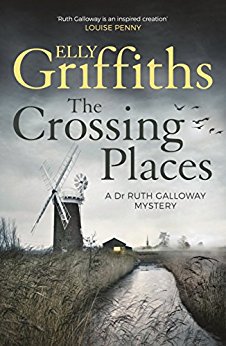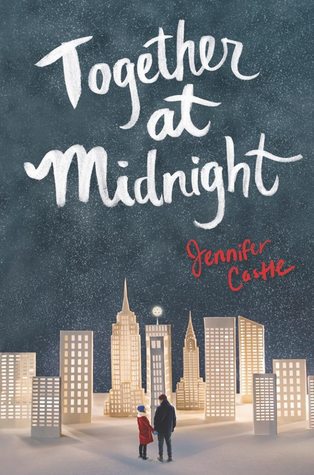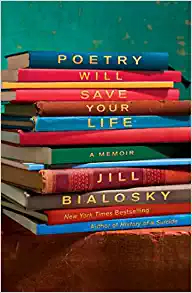
“Poems are made from the lives lived, borne out of experiences and shaped by solitary thought.” ~ Jill Bialosky
I just finished reading a wonderful new book that I picked up solely because of its intriguing title: Poetry Will Save Your Life by Jill Bialosky (Atria Books 2017). The Kirkus Review sums it up well: “An emotional, sometimes-wrenching account of how lines of poetry can be lifelines.”
This short memoir is centered on specific poems that have brought the author comfort, meaning, inspiration, or understanding during pivotal moments in her life. Bialosky organizes the book by themes such as Shame, Memory, Escape, Passion, First Love, and Mortality. A brief bio for each poet is included which deepens our awareness of the poem’s meaning. Each poignant chapter could stand alone.
Throughout the book, Bialosky reflects on the profound lessons and meaning poetry can offer us. “Poems are composed of our own language disordered, reconfigured, reimagined, and compressed in ways that offer a heightened sense of reality and embrace a common humanity.”
Whether you are a poetry lover or haven’t read a poem since high school, there is something in this book for everyone.
Ms. Bialosky, an award-winning poet, novelist, and book editor, never veers off into English professor mode when reflecting on the poems. Rather, she selects key phrases or themes that connect with her experience. Here she examines a stanza of E.E. Cummings poem, somewhere i have never traveled, gladly beyond.
(i do not know what it is about you that closes and opens;only something in me understands the voice of your eyes is deeper than all roses) nobody,not even the rain,has such small handsBialosky explains that the “use of the word voice as a modifier for eyes allows the reader to experience how much the speaker of this poem “sees” into his subject. Then she intuits the poet’s question: “How is it that one person can unlock something private within us? Or awaken things in us we fear?”
Bialosky writes about the death of her first child shortly after birth. She shares the never-ending pain of her beloved young sister’s suicide. In the chapter of grief, Bialosky comments on Auden’s poem, Musee Des Beaux Arts. “W.H. Auden documents the otherworldly state of grief and tragedy; how it strikes families while others are doing the dishes or taking the dog for a walk. Even dogs continue on their doggy life.”
Anyone who has experienced the death of a loved one can connect to this paradoxical state of being: How can everyone else just go about their business when my beloved is gone?
Bialosky says, “I will spend years trying to capture the experience of suicide in a prose work…Poems remain a sustaining source of comfort.
Like Jill Bialowsky, words, too, have been an integral part of my healing after losing my father—words shared with a therapist, words of comfort from family and friends, words I have written, and words of those who have crawled through the tunnel of trauma and grief and come out the other side.
It has been exactly two years since my father’s tragic death. In some ways, this is unfathomable. How could two years have passed? This disbelief has me thinking more about the elusive nature of time. If time is constant, why do our brains perceive it so differently? Why does time slow down when we grieve and speed up when we are happy? Why when we are waiting excitedly for a special event, do the days not move fast enough?
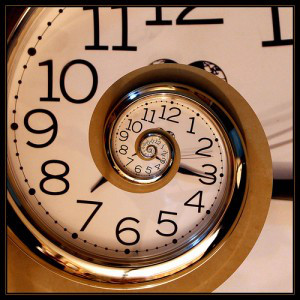
For centuries, poets have pondered time’s mystery. Consider Henry Van Dyke’s poem, Time Is.
Time is
Too Slow for those who Wait,
Too Swift for those who Fear,
Too Long for those who Grieve,
Too Short for those who Rejoice;
But for those who Love,
Time is eternity.
Emily Dickinson expresses this idea of expectation and waiting in her poem, If You Were Coming In The Fall. Although the agoraphobic poet spent most of her life inside her Amherst, MA home, Dickinson enjoyed her share of romantic interests. The following poem is thought to be attributed to a family friend, Judge Otis Phillips Lord, who died 2 years before Emily.
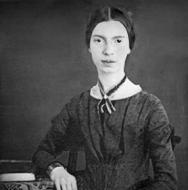
If you were coming in the Fall,
I’d brush the Summer by
With half a smile, and half a spurn,
As Housewives do, a Fly.
If I could see you in a year,
I’d wind the months in balls—
And put them each in separate Drawers,
For fear the numbers fuse—
If only Centuries, delayed,
I’d count them on my Hand,
Subtracting, till my fingers dropped
Into Van Dieman’s Land,
If certain, when this life was out—
That yours and mine, should be
I’d toss it yonder, like a Rind,
And take Eternity—
But, now, uncertain of the length
Of this, that is between,
It goads me, like the Goblin Bee—
That will not state— its sting.
~
Jill Bialowsy concludes that “poetry gives shape to those empty spaces within us that we have no words for until we find them in a poem.”
Do you have a favorite poem or one that holds special meaning?
Share this:- More
